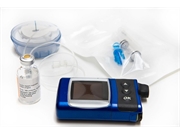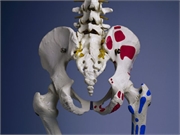Changes in Metabolic Syndrome Status Linked to MACE Risk
Risk for MACE decreased with recovery from metabolic syndrome, while risk up with MetS development
Alarm Settings of CGM Systems Impact Glucose Control in T1DM
Adjusting glucose thresholds for alarms linked to less time spent in hypoglycemia, hyperglycemia
Taking Multiple Fracture-Linked Meds Ups Risk for Hip Fracture
Addition of second and third fracture-associated drugs linked to increased risk for women and men
Large BP Variation Tied to Greater Long-Term Risk for Dementia
Dementia risk significantly increased after at least 15 years since measurement of SBP variation
New Screening Criteria Help Better ID Retinopathy of Prematurity
Use of criteria may substantially reduce the number of infants receiving eye exams
Longer PAP Therapy for Apnea Reduces Medical Visits, Costs
Increased therapy time for obstructive sleep apnea patients yields better results
Many Cancer Patients Interested in Pathology Consultations
Study finds patients have a strong interest in learning about their diagnosis
Cancer Patients With Obesity Show Poorer Psychosocial Health
Among breast cancer and prostate cancer patients, scores for distress higher for obese than nonobese
Most Toddlers Exceed Screen Time Guidelines
26.7 percent of children have an increasing screen time trajectory from age 1 to 3 years
Decline in Primary Care Visits Continued After ACA
Post-Affordable Care Act decline in primary care contact seen for all ages, incomes














